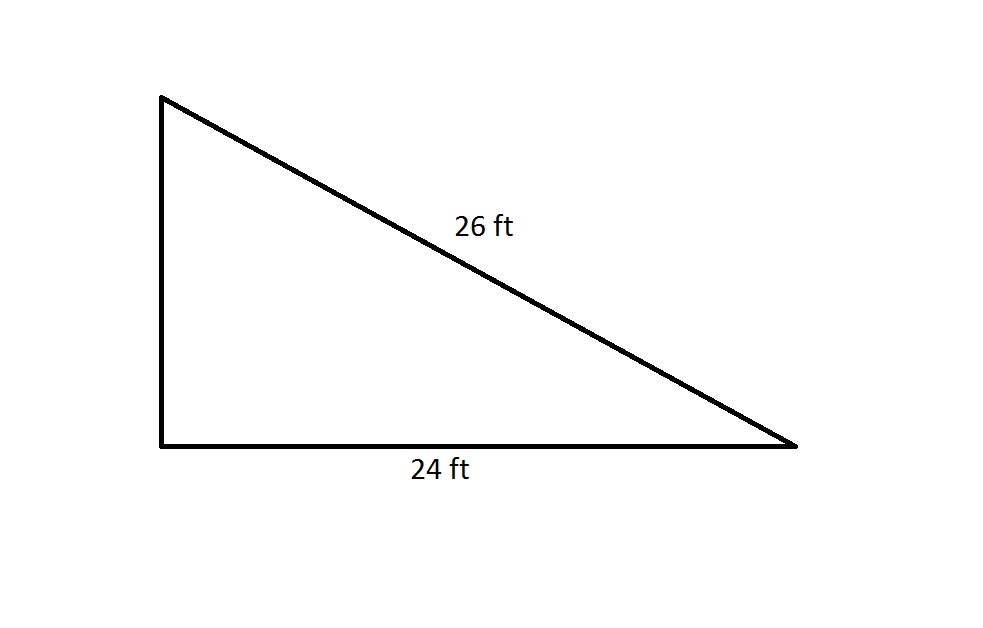All ISEE Upper Level Quantitative Resources
Example Questions
Example Question #51 : Isee Upper Level (Grades 9 12) Quantitative Reasoning

The perimeter of a regular octagon is 20% greater than that of the above right triangle. Which is the greater quantity?
(A) The length of one side of the octagon
(B) 3 yards
(A) is greater
(B) is greater
It is impossible to determine which is greater from the information given
(A) and (B) are equal
(A) and (B) are equal
By the Pythagorean Theorem, the shorter leg has length

The perimeter of the right triangle is therefore

The octagon has perimeter 20% greater than this, or

A regular octagon has eight sides of equal length, so each side of this octagon has length

Example Question #51 : Plane Geometry

The area of a square is equal to that of the above right triangle. Which is the greater quantity?
(A) The sidelength of the square
(B) 4 yards
(B) is greater
(A) and (B) are equal
It is impossible to determine which is greater from the information given
(A) is greater
(B) is greater
By the Pythagorean Theorem, the shorter leg has length

The area of a triangle is equal to half the product of its base and height; for a right triangle, the legs can serve as these. The area of the above right triangle is

The sidelength is the square root of this; 

Example Question #51 : Geometry

Figure NOT drawn to scale.
Refer to the above triangle. Which is the greater quantity?
(a)
(b) 108
(b) is the greater quantity
It is impossible to determine which is greater from the information given
(a) is the greater quantity
(a) and (b) are equal
(b) is the greater quantity
We can compare these numbers by comparing their squares.
By the Pythagorean Theorem,
Also,


Example Question #54 : Isee Upper Level (Grades 9 12) Quantitative Reasoning
Consider a triangle, 



(a) 55
(b)
It is impossible to determine which is greater from the information given
(a) and (b) are equal
(a) is the greater quantity
(b) is the greater quantity
(b) is the greater quantity
Suppose 
By the Converse of the Pythagorean Theorem, a triangle is right if and only if the sum of the squares of the lengths of the smallest two sides is equal to the square of the longest side. Compare the quantities 
Therefore, if




However, 

Example Question #52 : Geometry



Which is the greater quantity?
(a) The perimeter of
(b) The perimeter of
It is impossible to tell from the information given.
(a) and (b) are equal.
(b) is greater.
(a) is greater.
It is impossible to tell from the information given.
No information is given about the legs of either triangle; therefore, no information about their perimeters can be deduced.
Example Question #56 : Isee Upper Level (Grades 9 12) Quantitative Reasoning

Note: Figure NOT drawn to scale
Refer to the above triangle. Starting at point A, an insect walks clockwise along the sides of the triangle until he has walked 75% of the length of 
By the Pythagorean Theorem, the distance from B to C, which we will call 

The perimeter of the triangle is

The insect traveled the entirety of the hypotenuse, which is 13 units long, and 75% of the longer leg, which adds 75% of 12, or 

Example Question #57 : Isee Upper Level (Grades 9 12) Quantitative Reasoning

Refer to the above diagram, in which 

(a) Four times the perimeter of
(b) Three times the perimeter of
It is impossible to determine which is greater from the information given
(a) and (b) are equal
(b) is the greater quantity
(a) is the greater quantity
(a) and (b) are equal
The altitude of a right triangle from the vertex of its right angle - which, here, is 



making this the similarity ratio. The ratio of the perimeters of two similar triangles is the same as their similarity ratio; therefore, if 



Multiply both sides by 3:
Three times the perimeter of 

Example Question #51 : Plane Geometry
Quantity A: The hypotenuse of a right triangle with sides 

Quantity B: The height of a triangle with an area of 

The two quantities are equal.
The relationship of the quantities cannot be determined.
Quantity A is greater.
Quantity B is greater.
The two quantities are equal.
Quantity A: This is the special 





Quantity B: This triangle has an area of 



Quantity A and Quantity B are equal.
Example Question #53 : Geometry

Note: Figure NOT drawn to scale.
Refer to the above figure.
Which is the greater quantity?
(a)
(b)
(a) and (b) are equal.
It is impossible to tell from the information given.
(b) is greater.
(a) is greater.
(a) and (b) are equal.
Since the shorter leg of the right triangle is half the hypotenuse, the triangle is a 


Example Question #52 : Triangles
Right triangle 

Which is the greater quantity?
(a)
(b)
(a) and (b) are equal
(b) is greater
It is impossible to tell from the information given
(a) is greater
(a) is greater
The degree measures of the acute angles of a right triangle total 90, so we solve for 
(a)
(b)
All ISEE Upper Level Quantitative Resources






































